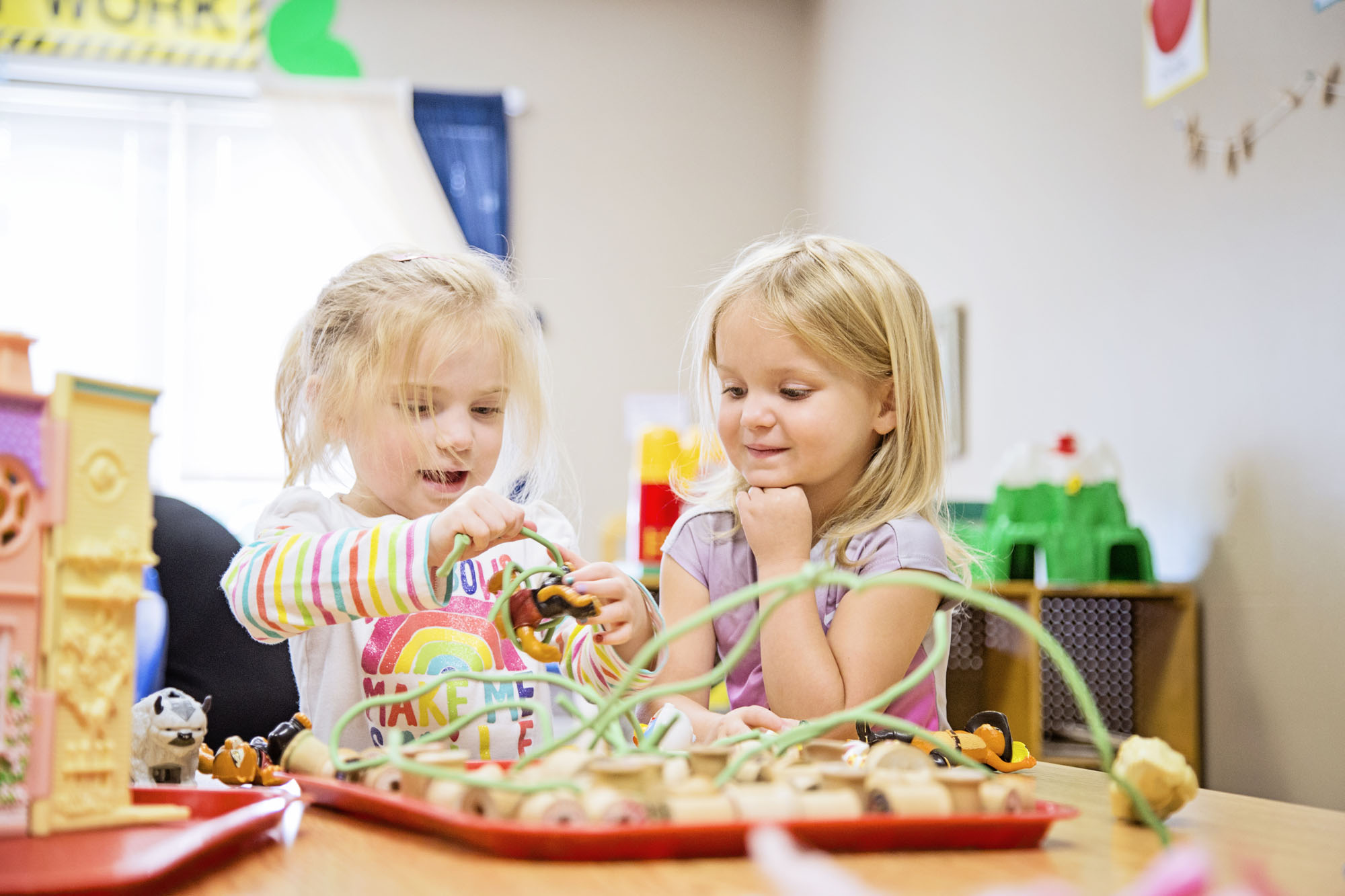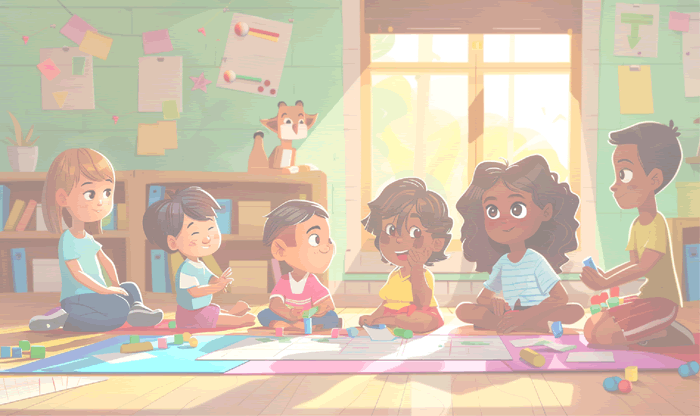Storytelling workshops that foster confidence in Grade School students
Wiki Article
Everything About Elementary School: Crucial Facts and Improving Experiences for Youthful Learners
Quality school plays an essential duty in forming young learners' futures. It incorporates crucial academic subjects and nurtures social abilities with structured interactions. In addition, after-school activities give opportunities for creative thinking and team effort. Adult involvement further boosts this foundation, supporting children in their scholastic journeys. As these elements link, they develop a comprehensive educational experience. What details strategies can instructors and moms and dads use to optimize this growth?Comprehending the Grade College Educational Program
As pupils start their quality institution journey, they experience an educational program developed to construct foundational skills and understanding across numerous topics. This curriculum normally includes core locations such as maths, language arts, scientific research, and social studies. Each subject is structured to grow important thinking, creativity, and analytic capabilities, crucial for future scholastic success.Language arts focus on reading, writing, and interaction abilities, cultivating pupils' capacity to reveal themselves plainly. Math introduces fundamental concepts, including addition, subtraction, and later on, reproduction and department, laying the groundwork for more intricate problem-solving. Science motivates inquiry and exploration, sparking interest about the all-natural globe, while social studies instills an understanding of community and cultural variety.
In addition to core subjects, the curriculum typically consists of arts and physical education and learning, providing a well-rounded instructional experience that promotes both intellectual and physical advancement. As a result, grade institution works as a crucial platform for long-lasting understanding.

The Structure of Elementary School Education
While quality school education and learning varies by region and establishment, it typically adheres to an organized framework that advertises modern knowing. Normally, quality college encompasses an array of grades, often from preschool through 6th or fifth quality, depending upon the instructional system. Each grade level corresponds to certain developmental turning points, with curricula created to construct upon anticipation.Courses are typically arranged right into core subjects, consisting of maths, language arts, scientific research, and social researches, making certain that pupils receive a well-rounded education and learning. Direction frequently incorporates straight teaching with hands-on activities, fostering engagement and vital thinking.

Assessment approaches vary but normally consist of tests, quizzes, and jobs to assess student understanding. Furthermore, instructors typically team up to develop interdisciplinary devices, enhancing the learning experience. Generally, the framework of elementary school education intends to cultivate foundational abilities, prepare trainees for future scholastic challenges, and promote a love for discovering that extends past the class.
Social Skills Development in Early Learners
Grade college education and learning not just concentrates on academic skills however also plays a significant duty in the growth of social abilities among very early learners. During these developmental years, children engage in numerous tasks that encourage interaction, collaboration, and interaction with peers. Group tasks and participating discovering settings give possibilities for youngsters to exercise sharing, discussing, and settling problems.Structured play fosters essential abilities like empathy and understanding, as children find out to respond and identify to the feelings of others. Via guided social communications, educators help pupils establish critical paying attention and conversational abilities. As children browse friendships and team characteristics, they obtain self-confidence in their social capacities.
The Role of Extracurricular Tasks
Extracurricular tasks play a considerable role in boosting the educational experience of grade institution students by supplying avenues for individual development past the classroom. These tasks permit students to check out passions and skills, cultivating creative thinking and self-expression. Engagement in sporting activities, songs, art, and clubs grows team effort, leadership skills, and a sense of belonging.Furthermore, involving in such tasks advertises physical wellness and wellness, urging students to keep an active lifestyle. Kindergarten. Extracurricular programs additionally work as a system for trainees to build relationships and establish social abilities, which are essential for their total growth
As students browse their interests outside of academics, they gain useful experiences that add to their self-confidence and strength. Inevitably, these tasks play a vital function in forming well-shaped people, preparing them for future obstacles both in and out of the class.
Supporting Learning With Parental Involvement
Adult involvement significantly improves the educational trip of elementary school pupils, as it fosters an encouraging environment that strengthens knowing. Involved parents add to their youngsters's scholastic success by going to college events, assisting with research, and maintaining open communication with instructors. Private Grade School Peoria. This participation not only increases trainees' inspiration but also grows a sense of belonging and self-worthStudy suggests that youngsters whose moms and dads are actively entailed have a tendency to have higher qualities, much better participation, and improved actions in school. In addition, parental interaction encourages the advancement of vital life abilities, such as time management and duty.
Colleges can facilitate this participation by hosting workshops, providing resources, and motivating routine comments. By developing partnerships in between instructors and moms and dads, grade schools can guarantee a thorough strategy to trainee growth. Inevitably, parental involvement offers as a cornerstone for fostering a positive instructional experience, benefiting both pupils and the institution area in its entirety.
Often Asked Inquiries
What Are the Common Grade Institution Hours for Trainees?
Common grade institution hours for students normally vary from 8:00 AM to 3:00 PM, differing by district. Lots of schools integrate a lunch break and recess, guaranteeing pupils have time to charge throughout the day.Exactly How Do Grade Schools Address Diverse Understanding Demands?
Quality institutions deal with diverse finding out requirements via distinguished direction, customized lesson plans, and support services, guaranteeing all students get proper resources. Teachers work together with professionals to develop comprehensive atmospheres that promote individual development and interaction.What Is the Function of Modern Technology in Elementary School Education And Learning?
Technology in elementary school education and learning boosts discovering via interactive devices, personalized learning experiences, and access to substantial sources. It promotes Grade School partnership among instructors and students, preparing kids for a technology-driven future while supporting varied academic needs.How Can Moms And Dads Aid With Homework Successfully?
Parents can assist with research successfully by producing an organized atmosphere, encouraging freedom, supplying resources, and offering support without directly offering solutions. Interaction with instructors additionally boosts understanding of assumptions and promotes scholastic success.What Prevail Challenges Faced by Quality Institution Students?
Usual difficulties dealt with by quality school pupils consist of trouble with time administration, understanding complicated ideas, preserving emphasis during lessons, steering social characteristics, and balancing scholastic responsibilities with after-school activities, every one of which can influence their general efficiency.As pupils commence their quality school journey, they encounter a curriculum made to develop foundational skills and knowledge across various subjects. Typically, grade college incorporates an array of grades, usually from kindergarten with 5th or sixth grade, depending on the academic system. Extracurricular tasks play a significant function in improving the educational experience of grade institution students by offering opportunities for personal growth beyond the classroom. Parental participation significantly improves the educational journey of quality college students, as it promotes an encouraging atmosphere that strengthens understanding. By developing collaborations in between parents and educators, quality colleges can assure a complete strategy to pupil advancement.
Report this wiki page